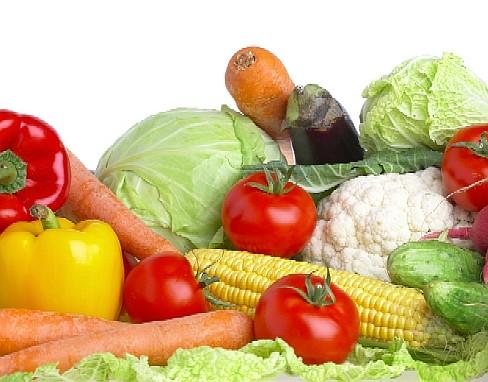Health Tips Healthy Food
Welcome, Guest. Please login or register.
Aug
20
Health Tips Healthy Food
Health Tips Healthy Food
Healthy eating is not about strict nutrition philosophies, staying unrealistically thin, or depriving yourself of the foods you love. Rather, it’s about feeling great, having more energy, and keeping yourself as healthy as possible – all which can be achieved by learning some nutrition basics and incorporating them in a way that works for you.
Being healthy doesn’t mean you have to run 10 miles a day or give up your favorite foods. There are lots of little things you can do to improve your health without drastically changing your lifestyle.
Eat plenty of fruits, vegetables, grains, and legumes—foods high in complex carbohydrates, fiber, vitamins, and minerals, low in fat, and free of cholesterol. Try to get fresh, local produce
Eat enough calories but not too many. Maintain a balance between your calorie intake and calorie expenditure—that is, don't eat more food than your body uses. The average recommended daily allowance is 2,000 calories, but this depends on your age, sex, height, weight, and physical activity.
Eat a wide variety of foods. Healthy eating is an opportunity to expand your range of choices by trying foods—especially vegetables, whole grains, or fruits—that you don't normally eat.
Keep portions moderate, especially high-calorie foods. In recent years serving sizes have ballooned, particularly in restaurants. Choose a starter instead of an entrée, split a dish with a friend, and don’t order supersized anything.
With all the hype about what to eat these days, it’s nearly impossible to get through a meal without feeling guilty—not to mention the pressure from tracking carbs and fat grams. If math is not your forte, stop counting, and repeat after me: “There are no bad foods, just bad choices.” These guidelines show that you can enjoy the foods you love while still eating healthfully.
Eat smart carbs, such as fiber-rich, whole-wheat breads and pastas. Fiber not only lowers cholesterol, but it also increases satiety and reduces the tendency to overeat. Look in the pasta aisle for 100% whole-wheat semolina spaghetti and other varieties.

Limit sugary foods, salt, and refined-grain products. Sugar is added to a vast array of foods. In a year, just one daily 12-ounce can of soda (160 calories) can increase your weight by 16 pounds. See suggestions below for limiting salt and substituting whole grains for refined grains.
Get your daily dose of vitamins and antioxidants this cold-and-flu season by eating a combination of at least five fruits and vegetables a day. Add berries to cereal, or make a yogurt-fruit smoothie. Having trouble getting the kids to eat their veggies? Add chopped zucchini and squash to their favorite spaghetti casserole, or drizzle a cheesy sauce over steamed broccoli.
Choose nutrient-dense snacks that give you more energy and keep you satisfied throughout the day. Eat a handful of heart-healthy nuts or trail mix instead of reaching for potato chips and candy.
Don’t be the food police. You can enjoy your favorite sweets and fried foods in moderation, as long as they are an occasional part of your overall healthy diet. Food is a great source of pleasure, and pleasure is good for the heart – even if those French fries aren’t!
Get moving. A healthy diet improves your energy and feelings of well-being while reducing your risk of many diseases. Adding regular physical activity and exercise will make any healthy eating plan work even better.
One step at a time. Establishing new food habits is much easier if you focus on and take action on one food group or food fact at a time